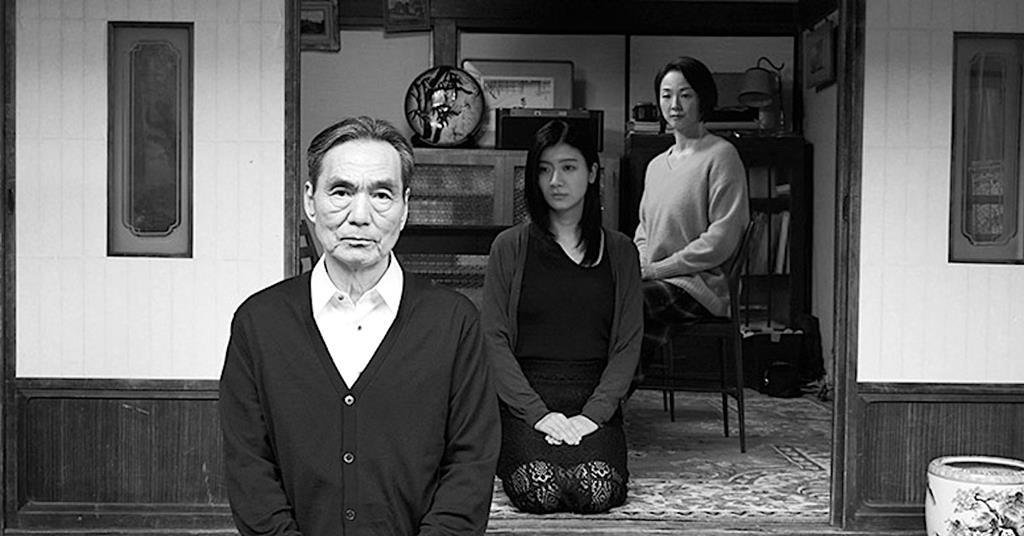Dir/scr: Yoshida Daihachi. Japan. 2024. 108mins
Retired, long-widowed college professor Gisuke Watanabe (Nagatsuka Kyozo) lives an austere however elegant life within the conventional Japanese home his grandfather constructed. In the future he receives an nameless e mail warning that an enemy (‘teki’ in Japanese) will strategy imminently. And the troublingly practical desires which have begun to plague Watanabe creep into his waking hours. The newest movie from Yoshida Daihachi, shot in tasteful black and white, is a piece of favor and actual confidence, a movie that begins as a restrained character research however which negotiates its gradual tone shift into one thing unsettling, chilling and sporadically very humorous with aplomb.
Accompished…very efficient exploration of the fear of a once-sharp thoughts that’s not to be trusted
The movie, based mostly on a novel by Yasutaka Tsutsui, is the most recent in a collection of literary diversifications by Yoshida following Funuke Present Some Love, You Losers!, which premiered in Cannes Critic Week in 2007, highschool drama The Kirishima Factor (2012) and 2014 Tokyo Movie Pageant competitors title Pale Moon. His most up-to-date movie, The Scythian Lamb, continued Yoshida’s run of average success at Asian festivals. Positioned someplace in between the unnerving chills of Natalie Erika James’ dementia horror Relic and Florian Zeller’s fashionable, shapeshifting chamber piece The Father, Teki Cometh is an completed and really efficient addition to the end-of-life sub-genre that explores the fear of a once-sharp thoughts that’s not to be trusted.
At first, nevertheless, the movie, which is split into chapters based on the seasons and begins with spring, evokes the light rhythms and modest pleasures of the protagonist of Wim Wender’s Good Day. Watanabe, a revered skilled in French literature, wakes, cooks himself an enviable breakfast (the selection to movie in black and white is an astute one, stopping the image from turning into distractingly foody), cleans his enamel, makes espresso from freshly floor beans, works on his manuscript or one of many sporadic articles that he contributes to {a magazine} run by certainly one of his former college students.
One other of his college students tends his backyard – he has taken it upon himself to renovate his former professor’s derelict properly in the home’s courtyard. The best way the lens lingers on the properly, its picket lid balanced over the precipitous drop under, leaves little doubt that it’s going to determine within the story in a while. Yet one more former scholar, a horny younger lady who flirts demurely, visits him for lunch, stirring up dormant feelings and urges within the aged man.
It’s round this level that the desires begin: capturing vivid moments of intimacy and abandon and, in a single memorable sequence, the disgrace and scrumptious humiliation of a BDSM-tinged colonoscopy. After which there are the messages that begin to arrive unbidden in his inbox: warnings of an enemy “from the north”, of refugees and social unrest, rumours of martial legislation. The specification of the “north” would usually imply Russia to the Japanese, however there’s one other chance – that the north refers to Watanabe’s physique and an enemy inside his failing thoughts. Then there are extra prosaic issues: his neighbour, even older than Watanabe and markedly much less fastidious about private hygiene, is waging a warfare in opposition to a feminine canine walker who, he claims, permits her schnauzer to defecate in entrance of his home on daily basis.
A part of what makes this image so more and more unsettling is Yoshida’s discrete strategy. The movie embraces silence – within the serene stillness of the picket home, the squawk of a crow or the tinkle of a windchime takes on a jarring high quality. And the rating, sparsely used however pressing and nervy, turns into paralysingly aggravating. Best of all is Nagatsuka’s compelling efficiency as a personality who’s revealed to be flawed, unreliable, confused but in addition in some methods complicit – he embraces the desires and delusions as an escape from the mundane solitude of his life.
Manufacturing firm: Geek Footage Inc
Worldwide gross sales: Happinet Phantom Studios rie.hatano@hsn.happinet.co.jp
Producers: Ozawa Yuji, Emori Toru
Cinematography: Shinomiya Hidetoshi
Manufacturing design: Tomita Mayumi
Music: Chiba Hiroki
Important solid: Nagatsuka Kyozo, Takiuchi Kumi, Kurosawa Asuka, Kawai Yuumi, Matsuo Satoru, Matsuo Takashi
